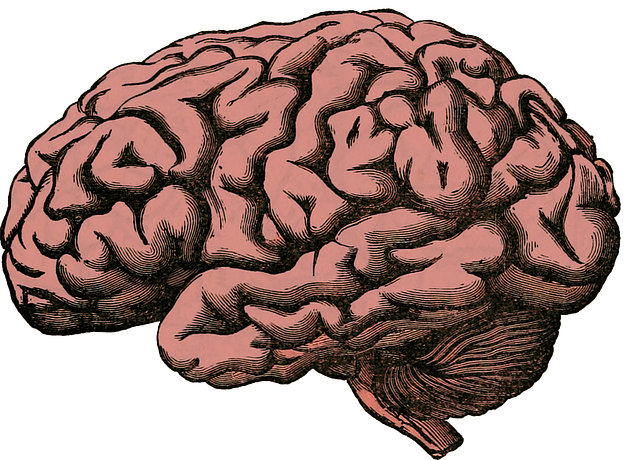Postpartum depression (PPD) is a significant mental health concern for new mothers, often leading to substance abuse as a coping mechanism. Parker Postpartum Depression Therapy offers a specialized approach by integrating mindfulness meditation and emotional intelligence training to manage PPD symptoms. This holistic model reduces substance abuse risks, promotes well-being, and addresses the root causes of addiction. Combining therapy with social skills training and community outreach, Parker's program provides crucial support for new mothers, emphasizing the connection between mental health and overall wellness. By destigmatizing addiction and building supportive communities, this innovative therapy aims to foster lasting recovery.
Substance abuse among new mothers is a growing concern, often linked to postpartum depression. This article explores comprehensive strategies to mitigate risks, focusing on both preventive measures and therapeutic approaches. We delve into understanding the connection between postpartum depression and substance misuse, identifying key risk factors specific to new mothers. Parker’s Postpartum Depression Therapy offers a unique model for recovery, while evidence-based strategies provide tools to manage and prevent abuse. Additionally, we highlight critical support systems and community resources essential for long-term recovery.
- Understanding the Connection Between Postpartum Depression and Substance Abuse
- Identifying Risk Factors for Substance Abuse in New Mothers
- Parker's Approach to Therapy: A Comprehensive Model for Recovery
- Evidence-Based Strategies for Preventing and Managing Substance Abuse Risks
- Support Systems and Community Resources for Long-Term Recovery
Understanding the Connection Between Postpartum Depression and Substance Abuse

Postpartum depression (PPD) is a complex condition that can significantly impact a new mother’s mental health, often characterized by intense sadness, anxiety, and fatigue. What’s less discussed but equally concerning is its potential connection to substance abuse. Studies show that women experiencing PPD are at a higher risk of turning to alcohol or drugs as a means of coping with their overwhelming emotions. This alarming trend highlights the need for comprehensive support systems and therapeutic interventions tailored specifically to address this issue.
One such effective approach is Parker Postpartum Depression Therapy, which integrates evidence-based practices like mindfulness meditation and emotional intelligence training. By focusing on emotional healing processes, this therapy empowers mothers to manage their symptoms, improve their overall well-being, and reduce the likelihood of resorting to substance abuse as a coping mechanism. Mindfulness meditation techniques teach present-moment awareness, helping individuals disengage from negative thought patterns associated with PPD. Similarly, emotional intelligence training equips parents with skills to recognize and regulate their emotions, fostering healthier relationships and reducing stress levels.
Identifying Risk Factors for Substance Abuse in New Mothers

New mothers face a unique set of challenges that can contribute to substance abuse risks, including physical and emotional changes post-pregnancy. Understanding these risk factors is crucial for early intervention and support. Studies show that postpartum depression (PPD) is a significant concern, affecting up to 1 in 7 new mothers, according to the Mental Health Policy Analysis and Advocacy literature. This mental health condition can lead to increased substance use as a coping mechanism, especially if left untreated.
The transition to motherhood can be demanding, impacting a woman’s overall well-being. The Mental Wellness Podcast Series Production highlights the importance of addressing PPD through therapy and support groups tailored for new mothers. Additionally, social skills training and community outreach programs can play a vital role in reducing substance abuse risks by fostering connections, promoting healthy coping strategies, and encouraging open dialogue about mental health concerns.
Parker's Approach to Therapy: A Comprehensive Model for Recovery

Parker’s Approach to Therapy offers a comprehensive model for substance abuse recovery, focusing on the interconnectedness of mental health and overall wellness. This innovative method acknowledges that addressing postpartum depression is often a critical component in preventing and mitigating substance misuse. By integrating specialized therapy techniques with a holistic view of mental wellness coaching, Parker Postpartum Depression Therapy aims to tackle the root causes of addiction.
This approach prioritizes Trauma Support Services as a fundamental aspect of recovery. It recognizes that many individuals struggling with substance abuse have experienced traumatic events, which can trigger or exacerbate mental health conditions. Through tailored interventions and a nurturing environment, this model facilitates healing, empowers personal growth, and fosters lasting change. The development of Mental Wellness Coaching Programs is thus encouraged, enabling individuals to gain the tools and resilience needed to navigate challenges and maintain long-term recovery.
Evidence-Based Strategies for Preventing and Managing Substance Abuse Risks

Substance abuse prevention and risk management have evolved over time, with a growing emphasis on evidence-based strategies. These approaches are backed by extensive research, demonstrating their effectiveness in mitigating potential risks and promoting better outcomes for individuals grappling with mental health challenges, such as Parker postpartum depression therapy. One such strategy is Cognitive Behavioral Therapy (CBT), which helps individuals identify and change negative thought patterns and behaviors related to substance abuse.
Incorporating Self-Care Routine Development for Better Mental Health has also proven beneficial. This involves adopting evidence-based self-care practices, including mindfulness techniques, regular exercise, and healthy eating habits. These routines serve as a shield against stress and potential triggers, fostering mental well-being and enhancing individuals’ resilience to substance abuse risks. Additionally, promoting Mental Health Awareness through education and open conversations can help normalize discussions around addiction, reducing the stigma associated with seeking support.
Support Systems and Community Resources for Long-Term Recovery

Building a strong support system is integral to long-term recovery from substance abuse. Community resources play a vital role in this process, offering a network of support and services tailored to individual needs. For instance, mental health education programs designed specifically for at-risk populations can equip individuals with the knowledge to recognize triggers and develop healthy coping mechanisms. These programs often include group therapy sessions, where sharing experiences fosters a sense of community and understanding.
Additionally, Parker Postpartum Depression Therapy (PPDT) is an innovative approach that addresses dual diagnoses effectively. PPDT combines specialized mental health services with community outreach, focusing on stress reduction methods and self-care routine development for better mental health. This holistic strategy ensures individuals receive comprehensive care, enhancing their chances of sustained recovery.
Substance abuse during and after pregnancy poses significant risks, with postpartum depression (PPD) as a key contributing factor. By identifying risk factors and implementing evidence-based strategies, such as Parker’s comprehensive therapy model, healthcare professionals can effectively prevent and manage these challenges. This multi-faceted approach, coupled with robust support systems and community resources, is crucial for long-term recovery, ensuring a brighter future for both mothers and their children. Additionally, further research into the connection between PPD and substance abuse will aid in refining risk reduction strategies, ultimately saving lives and fostering healthier communities.














